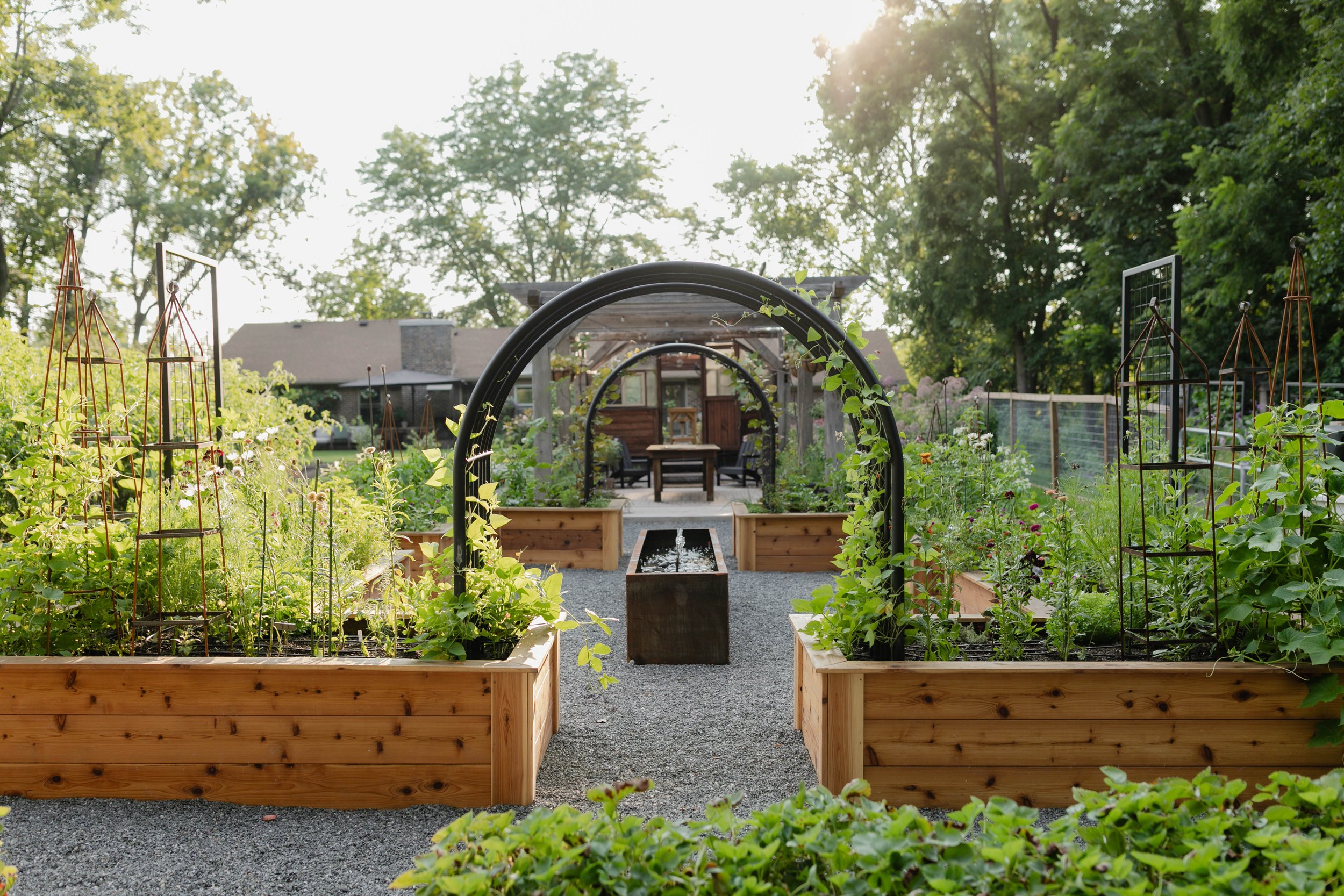Your Fall Garden Clean-Up Checklist
Fall chores in the garden always seem a little bittersweet, don't they? I can never tell if I put them off because I’m just feeling a little lazy, or because I don’t want to say goodbye to the vibrant life and abundance in my backyard garden!
But either way, you can’t forget to do those fall chores. So for those of you who are ready to get your garden cleaned out for the season, here are 12 tips to ensure a healthy and productive garden next spring!
Take any final notes or pictures of where you planted different varieties in your garden this past season so you can be conscientious of crop rotation next year and get a head start on planning your layout for spring planting.
Remove any debris, including dead or diseased plants. Remember, any plants that you suspect may have a disease should NOT go into your compost. Dispose of them in trash bags to contain the disease instead.
I know it's hard to do, but we don't want disease to infect the compost, particularly if you're going to be using the compost in your garden next year! The best thing to do is to remove the diseased plants from your property entirely.
Remove any weeds in your existing garden beds. You want to remove weeds before they mature so they don’t come back to haunt you next year.
If you have any fruit trees on your property, mow the grass between fruit trees or pull it away from the base to prevent harboring pests. While you're at it, it's also a perfect time to add tree guards to protect the trunks.
If you experienced a poor gardening season and you think you may have soil issues, now would be a great time to conduct a soil test so you know what amendments need to be applied to improve your growing medium.
Add a fresh layer of quality compost, about 1-2 inches, to your garden beds. I use the Purple Cow-activated compost. When you add compost in the fall, it gives the natural biology extra time to work the nutrients into the soil. Boosting the health of your soil should always be a top priority.
Plant your garlic, especially after you've added some fresh nutrients to your garden beds.
Remove and sanitize any plant supports or cages. You can use an alcohol or water and bleach solution in a spray bottle to kill any diseases that may be on them.
After a hard frost and once asparagus fronds have yellowed, cut down the asparagus fronds and compost them.
After a hard frost, prune raspberry canes. Make sure to identify the proper pruning technique for each variety.
Take a weekend to clean, sharpen, and sanitize all your garden tools for the spring season. Make sure to drain any irrigation lines or hoses and store all your pots indoors to avoid cracking.
Order seed catalogs for next year. Seeds seem to be selling out sooner and sooner each year, so if you’ve taken my advice and have a solid plan for next year’s garden, go ahead and order those seeds now.
My favorite places to source organic seeds are High Mowing Organic Seeds and Eden Brothers; I’m impressed with the wide variety and the high quality every time I order from them.
When ordering your seed catalogs, take a peek at the microgreen selection at High Mowing. They have great growing supplies and seed offerings. Microgreens are a great option to keep growing a little something throughout the winter. And they pack a real nutritional punch!









